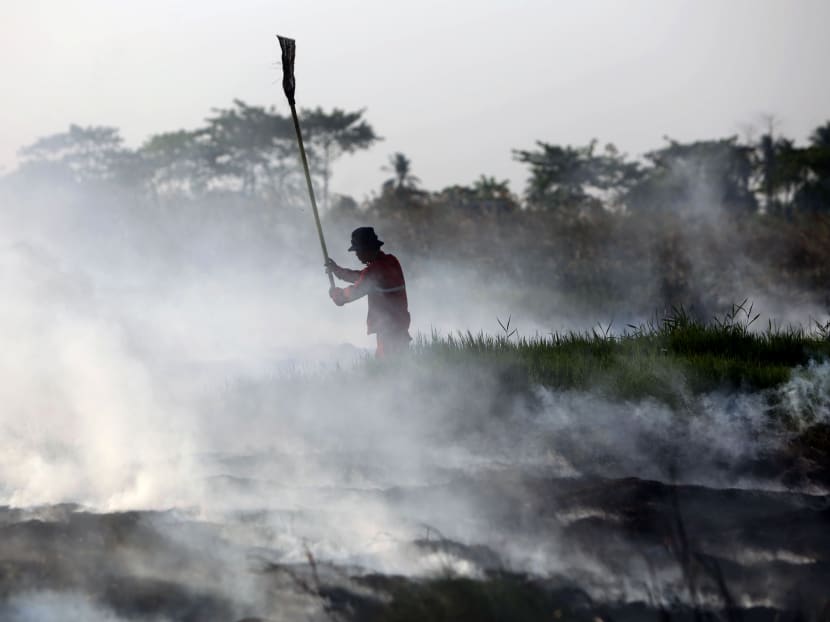Progress on haze monitoring system slow: Balakrishnan
SINGAPORE — Progress on the regional haze monitoring system has been very slow, but concrete steps can be taken through information sharing between governments, Minister for the Environment and Water Resources Vivian Balakrishnan said today (July 28).

A fireman battles a peatland fire on a field in Simpang Pelabuhan Dalam, South Sumatra, Indonesia, Tuesday, July 28, 2015. Photo: AP
SINGAPORE — Progress on the regional haze monitoring system has been very slow, but concrete steps can be taken through information sharing between governments, Minister for the Environment and Water Resources Vivian Balakrishnan said today (July 28).
Given that Malaysian and Indonesian authorities have raised legal difficulties in making land concession maps public, Dr Balakrishnan said he has “counter-proposed” an exchange of information on a government-to-government basis. Concession maps show the tracts of land companies have been allowed to develop.
The haze monitoring system was adopted by five Association of South-east Asian Nations (ASEAN) members — Indonesia, Malaysia, Singapore, Brunei and Thailand — nearly two years ago in October 2013, but is lacking the concession maps that, together with satellite images of hot spots, would help track down parties responsible for transboundary haze.
Dr Balakrishnan, who was in Jakarta for a meeting of the ASEAN Sub Regional Ministerial Steering Committee on Transboundary Haze Pollution, said the risk of haze remains if the El Nino weather phenomenon brings about prolonged drier and warmer weather in the second half of this year.
“If we can establish this system in which we can directly exchange this information, facilitate investigations, adduce evidence that can be offered in the court of law, I think we’ll increase considerably the accountability for companies that start such fires,” he said.
Errant companies could be in breach of both Indonesian laws and Singapore’s Transboundary Haze Pollution Act. “So even while we try to overcome the hurdles with the publication of concession maps, I’m hoping we can still move and take concrete steps on a bilateral government-to-government basis,” he added. Yesterday’s meeting was constructive “but there’s still a lot more that we need to do”.
The Indonesian authorities have stepped up efforts on the ground and there have been fewer hot spots in the first six months of this year, he noted.
Separately, Singapore-headquartered pulp and paper giant Asia Pacific Resources International Holdings Limited launched an initiative today to prevent fires in nine villages in Riau province in Sumatra. The programme, led by its operations arm and done with partners such as non-governmental groups, includes community incentives to not burn, air quality monitoring and sustainable agricultural alternatives. APRIL’s manufacturing operations are in Pangkalan Kerinci in Riau.






